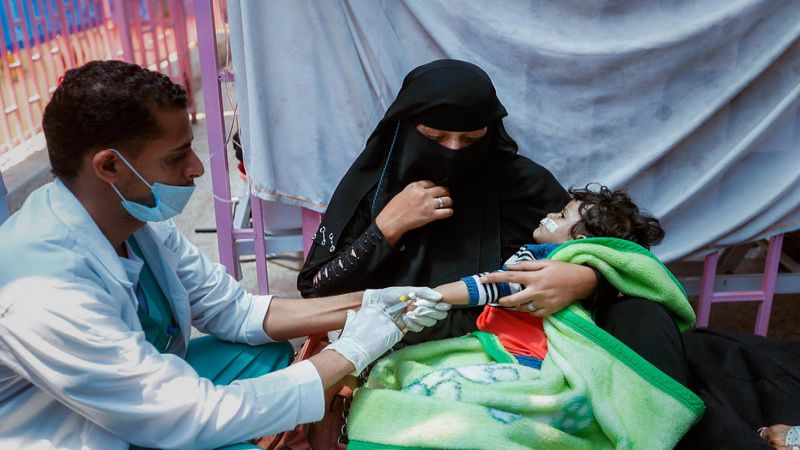
By Ved Nanda
With a stalemate in the deadly civil war in Yemen neither of the warring parties — the Saudi-led multinational coalition and the … Houthis — can expect a military victory. It is widely recognized that there must be a political solution to the conflict, but finding a framework acceptable to both sides has remained a formidable challenge. What constructive part can the U.S. play in ending this protracted conflict?
As the costly war rages on, it has taken a heavy toll — 3.9 million Yemenis displaced internally and 60,000 killed. It has also created, according to the U.N., the worst humanitarian crisis in the world. Almost 80 percent of Yemen’s 30 million people need some form of assistance. One-third of the population is suffering from extreme levels of hunger and two-thirds from food insecurity. More than three million people, including two million children, are acutely malnourished. The United Nations says that humanitarian assistance is “increasingly becoming the only lifeline for millions of Yemenis,” and it estimates that 230 out of Yemen’s 333 districts are at risk of famine.
On April 4, invoking the decades-old War Powers Resolution and reclaiming Congress’s constitutional war power, the House of Representatives voted 247-175 to end U.S. participation in the war in Yemen by stopping logistical support to the Saudi-led coalition. Last month, the Senate passed a similar bill, 54-46, as six Republicans joined the Democrats. The White House had threatened a veto, but President Trump may change his mind and let the legislation take effect.
Since The Washington Post columnist Jamal Khashoggi’s murder in the Saudi consulate in Turkey, Congress has been increasingly uneasy about the Trump administration’s strong support for Saudi Arabia, a concern furthered by repeated Saudi airstrikes causing civilian casualties, even hitting schools and hospitals, often with American-supplied bombs.
America’s involvement is purportedly aimed at curbing Iran’s expansionist designs and its influence in the region. The Saudis want to reinstate Yemen’s former ruler, Abdurabbuh Mansour Hadi, ousted by the Houthis and now living in exile in Saudi Arabia. U.S. and the Saudis both consider the conflict a proxy war for Iran. But experts have observed that the Houthis are not simply a proxy, nor are they under Iran’s control or command. … But the Houthis’ priority is not Iran’s interest but their own. Iran has surely used this relationship to extend its influence in the region ….
The Congressional rebuke to end U.S. support of the Saudi-led coalition will not end the Yemeni conflict. Nor would another major effort, which took place in December 2018, to find a comprehensive peace settlement. The U.N. had then brought the warring parties together in Sweden and after a week of negotiations, the outcome was the Stockholm Agreement, which included a cease-fire around the port city of Hodeida and a prisoner swap. On January 16, 2019, the U.N. Security Council authorized the creation of a U.N. mission to support the agreement. The accord remains in force but is not being effectively implemented.
These were certainly important steps toward peace, but the conflict in Yemen is multi-dimensional and peace will not occur unless the two sides, along with a Southern separatist movement, which has grown recently, come together.
The U.S. must engage with the Houthis and the Southern separatists so that a negotiated settlement, acceptable to all sides, can be reached. The Yemenis should be able to trust that America is invested in their interests and not in those of Saudi Arabia. This is a tall order, but it is imperative that the U.S. undertakes a mediator’s role to ensure that Yemen does not become a safe haven for al Qaeda in the Arabian Peninsula and the various affiliates of the Islamic State that are already operating there.
Source: The Denver Post, Edited by Website Team